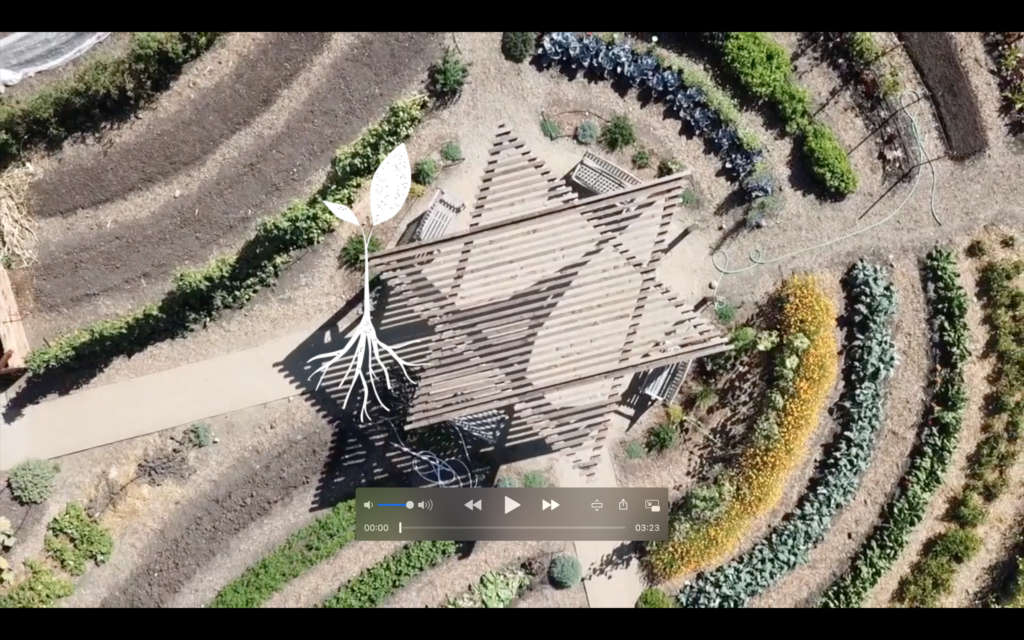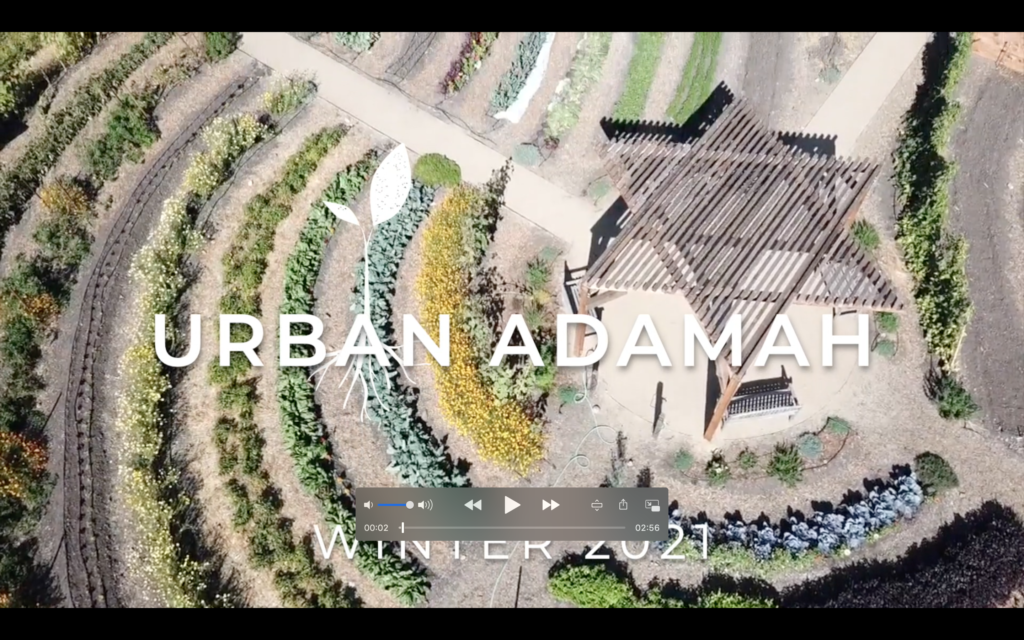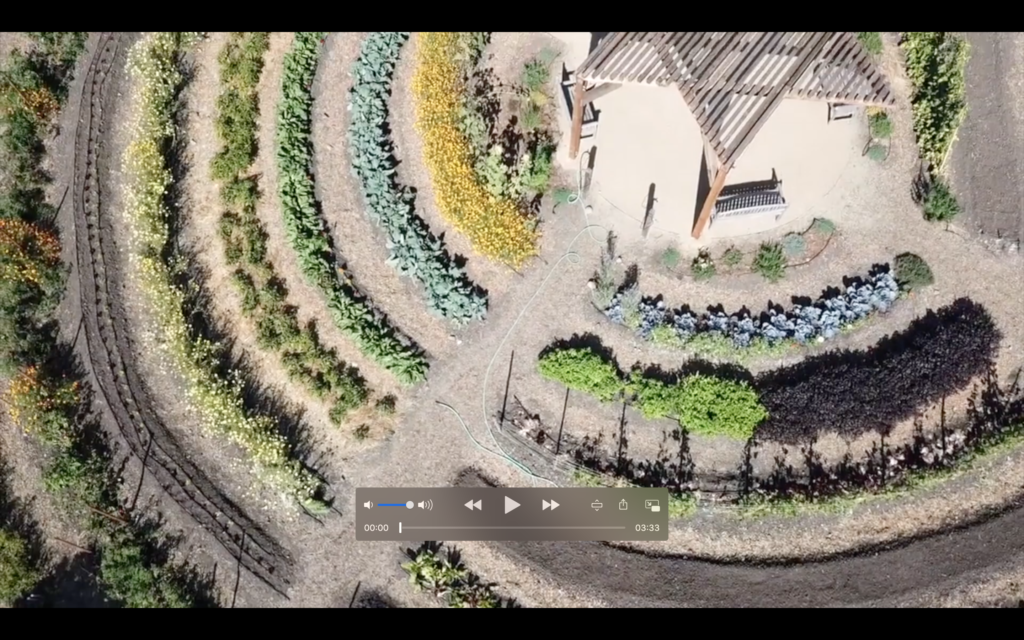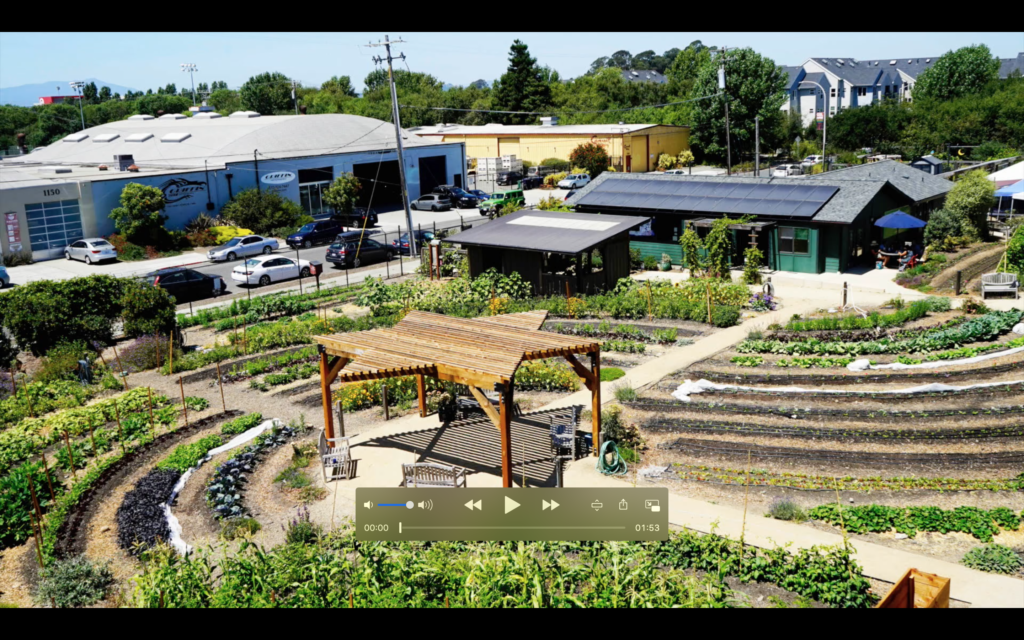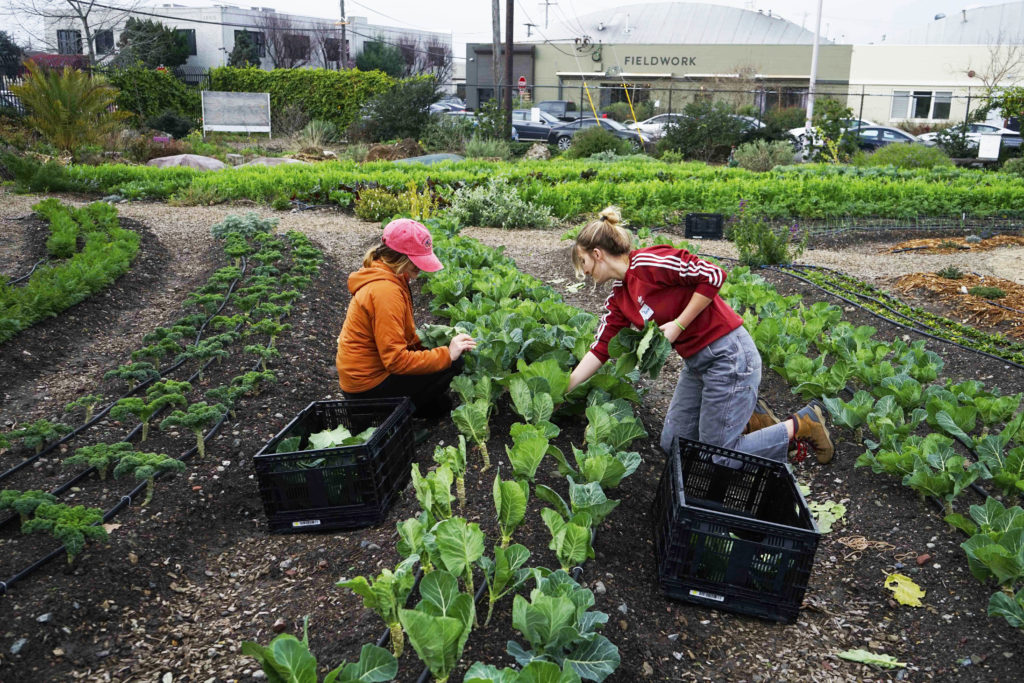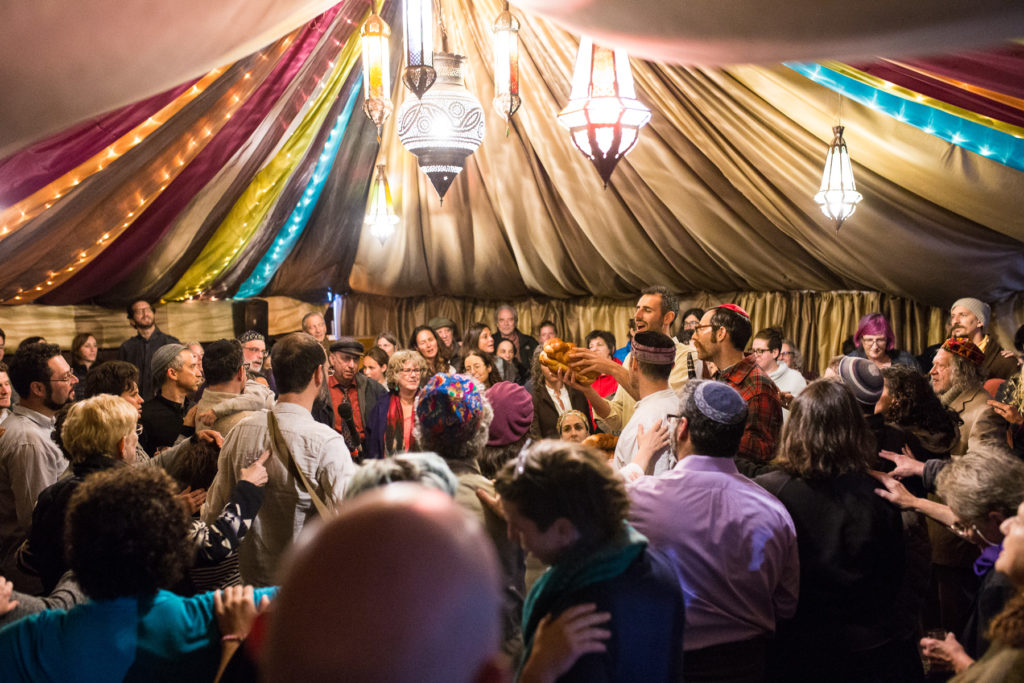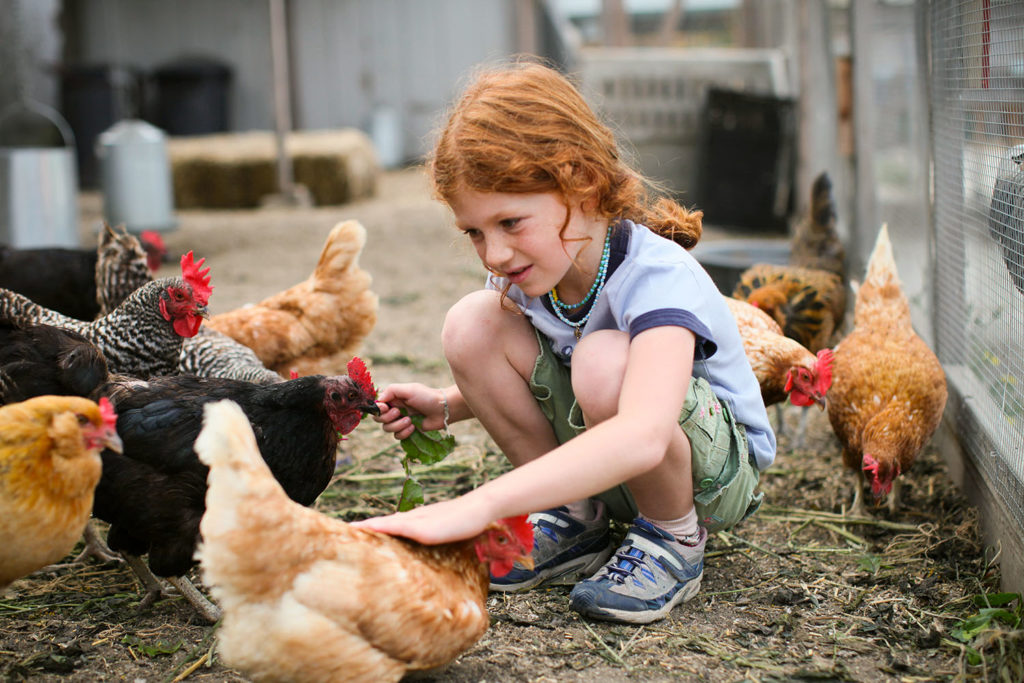OUR MISSION
Urban Adamah seeks to build a more loving, just, and sustainable world. We ground and connect people — to themselves, to others, and to the natural world. We do this by providing farm-based, community building experiences that integrate Jewish tradition, mindfulness, sustainable agriculture, and social action.
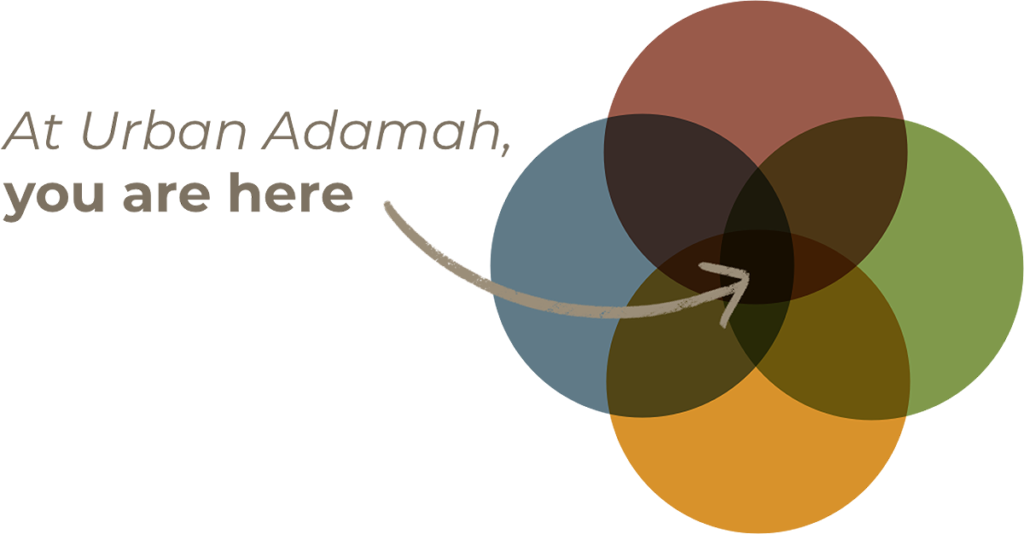
OUR VALUES
Jewish Tradition
Jewish tradition provides the core values and moral compass that guide our effort. Chesed (kindness), Tzedek (justice), and Ahava (love), motivate all that we do. These values inspire and infuse our programs. They inform how we grow our food and what we do with it. They bind us together as a community. And because Jewish tradition is rooted in our pastoral and agrarian history, exploring the human connection to land, food, and the natural world is also a powerful doorway of connection to Jewish practice, ritual, and celebration.
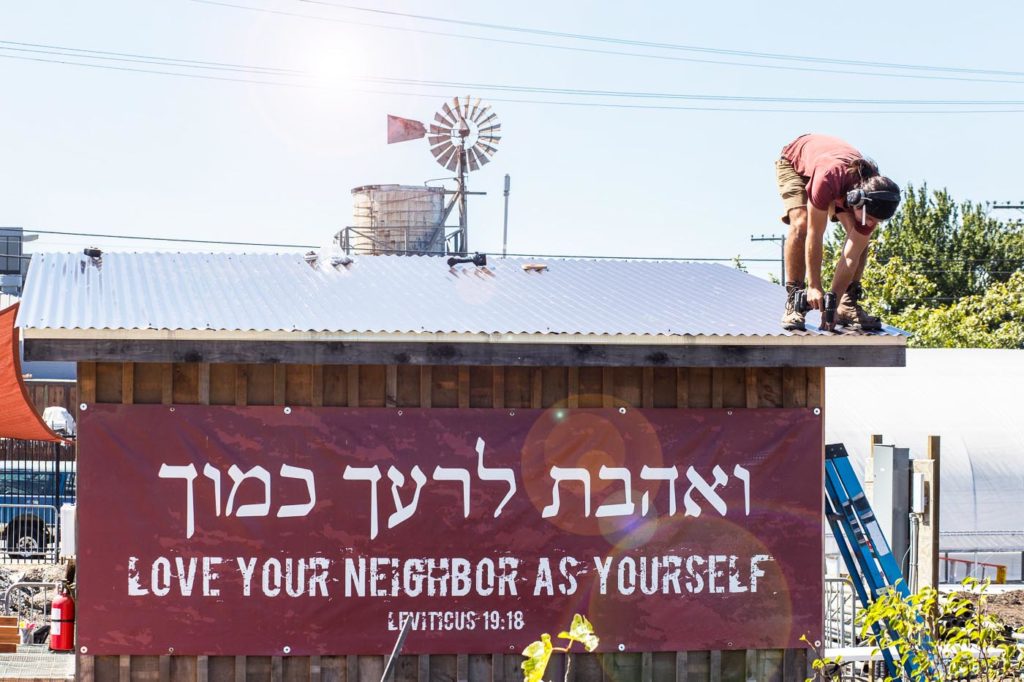
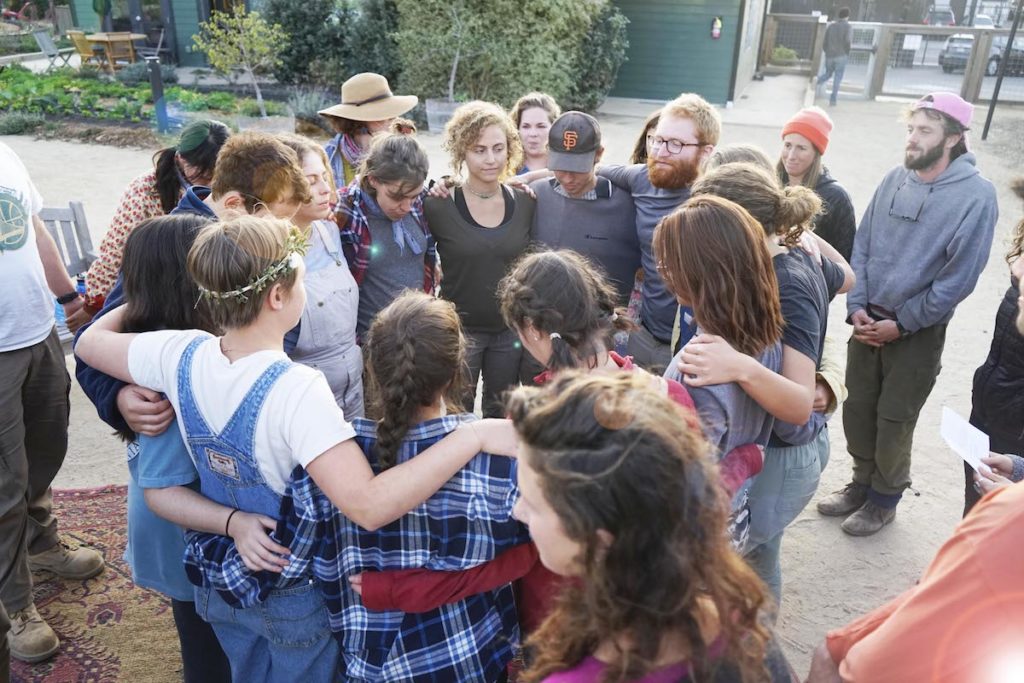
Social Action
We believe that actively growing and exercising our muscles of compassion and care are essential to building a more loving, just, and sustainable world. The work of every program participant who works on our farm, young and old, is oriented towards providing food for those in our community most in need. To date, we have grown and distributed more than 300,000 pounds of produce and eggs. In addition, our fellows spend one day a week volunteering at other food access and urban garden organizations. And, we are on an active journey to understand how we can make a more meaningful difference by leveraging our own skills, power, and privilege to confront inequality and injustice in the world.
Sustainable Agriculture
Our practice of sustainable agriculture draws from a range of traditional and modern agricultural methods and technologies. Participants in our programs engage in all aspects of the agricultural cycle – from seed to harvest, to food preparation, and composting. Through their work and learning on the farm, participants come to more fully appreciate where their food comes from, how it is grown, and the natural systems that make it, and all life, possible.


Mindfulness
Practicing presence – of heart, mind, and body – is essential for building a more loving, just, and sustainable world. Participants in Urban Adamah programs learn how to recognize their habits of mind, integrate mindful awareness into their daily lives, and become more fully present and available to others.
RECENT PROGRAM HIGHIGHTS...
Take a journey into the past with us! Find out what Urban Adamah was up to this past year. See the seasons change before your eyes, as well as the farm’s infrastructure, the harvest, and the community that makes Urban Adamah so special.
Click the images to access the videos.
SO MUCH HAS HAPPENED...
At Urban Adamah in the last 12 years — take a moment to experience the last decade with us by watching the short video below.
OUR HISTORY
Dive into our past, our present, and learn about our future plans!
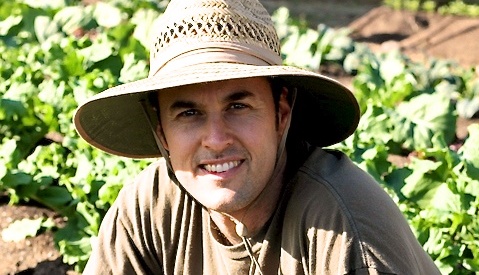
2010
The Beginning
Founded in 2010 as the first urban Jewish community farm in the United States, the seeds of Urban Adamah were planted almost a decade earlier in Connecticut, when Adam Berman founded the Adamah Fellowship, a farm-based residential leadership program at the Isabella Freedman Jewish Retreat Center. In this three-month program, young adults experience a compelling combination of leadership training, organic farming, community building, and progressive Jewish living and learning. Today, that program has graduated more than 800 individuals who have gone on to make significant contributions to Jewish life, social justice, and environmental stewardship in communities across North America and the world.
Adam believed that the success of the Adamah Fellowship could be built upon in an urban environment to reach more people, develop meaningful community partnerships, and serve diverse populations. Adam set his sights on establishing an urban farm that provided a fellowship program similar to Adamah, offered Jewish agriculturally-based experiential programs for youth and families, and contributed to food security in the East Bay.
The first challenge… finding land.
In the summer of 2010, Adam met Rich Robbins, CEO of Wareham Development. Rich agreed to donate to Urban Adamah the use of an acre of undeveloped land on Parker Street in West Berkeley for three years (later extended to five years). This early support made the dream possible. That fall, Adam formally founded the organization, began building a board of directors, and brought together community leaders to imagine and develop our initial programs.
2011 – 2015
The Parker Street Years
The first few years of the organization focused on building the farm and our programs. The farm included raised beds for vegetables, greenhouses, a small aquaponics system, teaching tents, meditation spaces, chickens, bees, and milking goats. We used every square inch we could, even growing food in soil piled directly onto concrete.
Our first fellowship launched in the summer of 2011. Summer camp began with 30 campers that same year. Our weekly Free-Farm Stand opened in the summer of 2012. Shabbat, holiday celebrations, and other community programs began drawing hundreds of weekly visitors to our campus. The seeds of community were sprouting.
We always knew our time on Parker Street would be limited, so we built our farm campus there with relocation in mind. Our office building was a trailer on wheels. Our growing beds were built on moveable pallets. Our program and play structures were all designed for easy take-down and rebuild.
In July of 2013, we discovered a two-acre parcel for sale in Northwest Berkeley, nestled between a wild section of Codornices Creek and the last working windmill in Berkeley. The site just screamed: community farm! By December of that year, thanks to an outpouring of support primarily from the Bay Area Jewish community, we had raised most of the funds to purchase the property. We closed in September of 2014.
We spent the next two years designing the new campus, acquiring the necessary permits and doing preliminary site development including grading, soil remediation, and major underground utility installation.
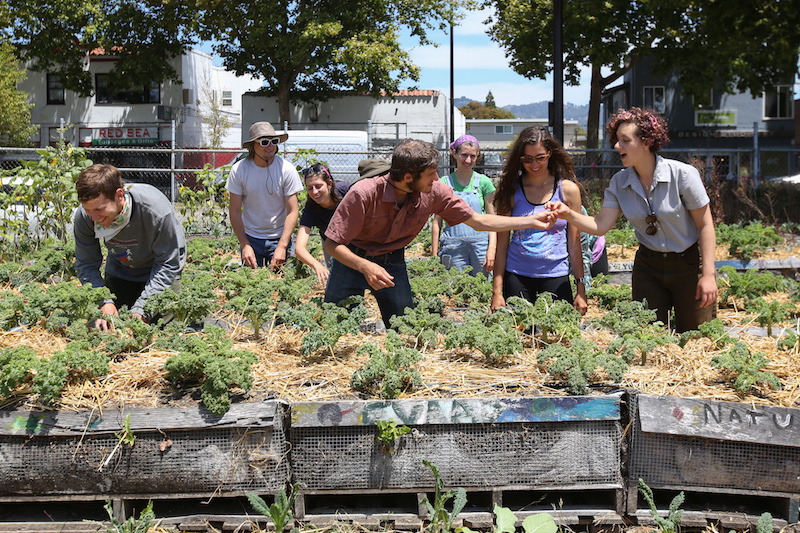
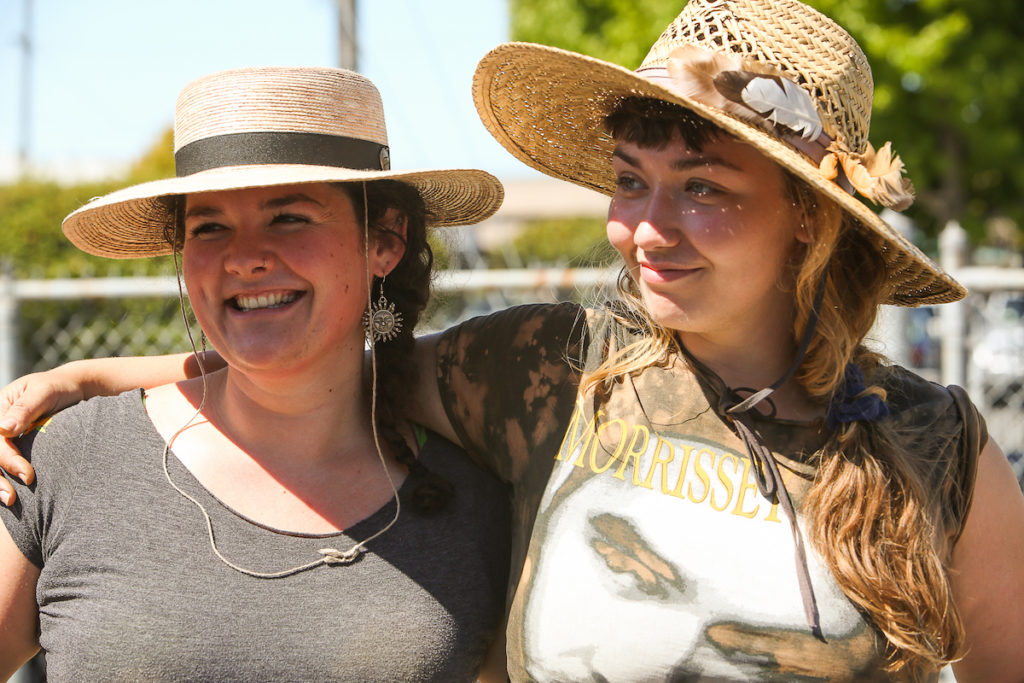
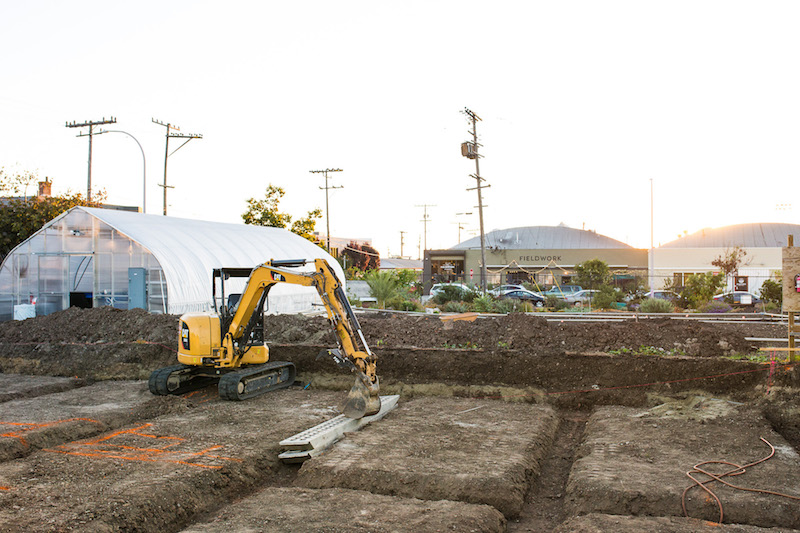
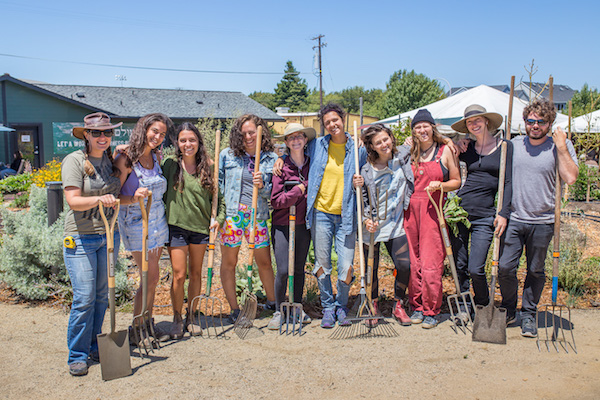
2016 – 2019
A Permanent Home: Growing & Deepening Our Work
In May of 2016, we built the first structure on the new land, our administrative offices (no longer on wheels). The essential programmatic and agricultural elements of the site soon followed: our main farm and small gardens, animal pens for chickens and goats, a robust aquaponics greenhouse, two large tents for community gatherings and programs, a 30-foot yurt, a community kitchen, and real bathrooms with showers (bye-bye porto potties).
Sustainability has been a primary guide in the development of our new campus, which features a 45 kw solar pv array (large enough to generate 100% of the site’s electricity needs in a year) and a large greywater system that takes waste water from the showers and washing machines on site, cleans it, and delivers it to fruit trees and perennial crops throughout the campus.
Today, our new campus is a thriving center for Bay Area Jewish life. More than 10,000 people annually participate in our summer camp programs, festival and Shabbat celebrations, workshops, trainings, after-school programs, private celebrations, and our young adult fellowship. Our impact is local – thousands consider Urban Adamah their cultural and spiritual home; regional – individuals as far north as Napa and as far south as Los Gatos participate in our programs; and national – our fellows take the skills and confidence they gain from their experience with them and become positive agents of change in cities around the country, inside and outside the Jewish world.
At the same time, our pedagogical model, one that integrates Jewish tradition, mindfulness, farming, and sustainable agriculture, is being replicated in communities around the globe. Today, there are 13 major Jewish community farms around the world, 11 of which were founded by or are currently led by alumni of the Urban Adamah Fellowship or its predecessor project, the Adamah Fellowship in Connecticut (still going strong). Finally, our work is also having an important impact inside legacy institutions in the Bay Area, who are hiring our fellowship alumni in substantial numbers to invigorate their Jewish programming. Since inception, 22 Bay Area Jewish organizations have hired Urban Adamah fellowship alumni.
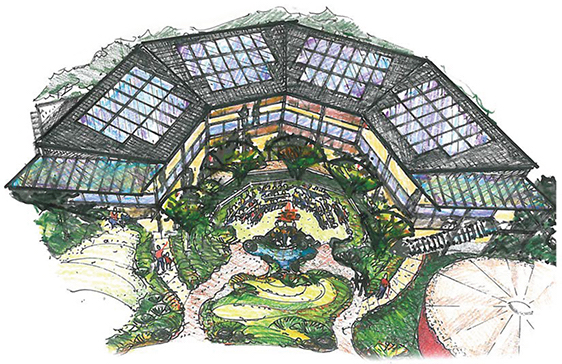
2020 – 2024
The Next Phase
- The Retreat Lodge: Inaugurated in November 2020, our 54-bed retreat space has made it possible for us to host a wide variety of overnight programs and organizations. In-house programming has included youth and family, meditation, and other program specific multi-day retreats. Additionally, we’ve hosted retreats for a growing number and variety of organizations, including the California Institute of Integral Studies, Moishe House, Jewtina y Co, Interfaith Foods, Jewish Teen Foundation, Diller Teen Fellowship, Midrasha, Nice Jewish Boys, and more. Learn more.
- The New Community Hall: Completed in fall of 2023, this new space accommodates more than double the number of people we were previously able to welcome for indoor programs. Our Community Hall enables us to host up to 320 people for Jewish holiday celebrations, cultural events, community gatherings, family celebrations, and conferences—and is available for rent!
- Programming & New Initiatives: We are actively piloting and launching new programming across all areas of our work. Examples of work already launched include the new Teen Internship, and redesign of the young adult Residency and Fellowship. Programs in development and soon to be launched include new youth and family programs, new young adult drop-in programming, a host of new community programs, and burgeoning new partnerships with BASE, New Lehrhaus, OneTable, and GatherBayArea. We are very excited about how these new initiatives and partnerships will welcome and create space and opportunities for more community members to find a welcoming and enriching space on the farm and through our programs.
- Community Partnerships: We are continuing to deepen and broaden our social justice work, developing relationships with community organizations and working on strategic initiatives that leverage our skills and experience to support their work.
We are profoundly grateful to the thousands of extraordinary people – donors, staff, fellows, community members, and program leaders – who have made our work possible. We look forward to welcoming you to the farm, and joining us in our work to build more loving, just, and sustainable communities.
